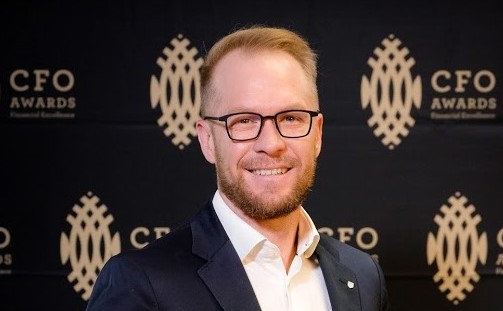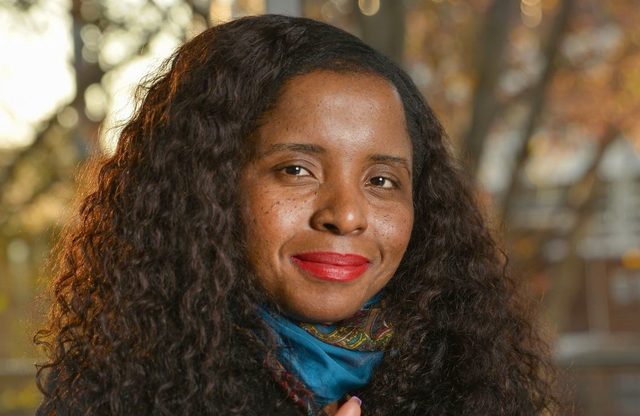We round up some of the perspectives and advice some of SA's leading CFOs shared in 2020.
What makes a CFO successful?
King Price Insurance new CFO Paul Stedall (pictured above) says a successful CFO combines technology and emotional intelligence.
Meeting the challenges of a rapidly changing world is not always comfortable, he says. “It means that we not only re-evaluate our own skills and strengths, but also those of our team. There’s a certain level of reskilling that comes with moving to new technology and a different way of doing things. But if it allows our teams to explore their passions, and to focus more on value-adding special projects and less on the same-old same-old, they’re generally up for it.
“In fact, I’d go so far as to say that the biggest predictor of a successful finance team into 2021 and beyond is not the latest cloud-based accounting systems and AI machines that are helping us improve our processes and drive transformation,” he says. “It’s a finance team that is engaged and energised on a daily basis, whether they’re working from the office or their homes. It’s a group of people for whom nothing is a chore, and who want to bring their best selves to work each and every day. If our finance people are loath to get out of bed and ‘go to work’ every morning, we as CFOs have failed.”
Many people ask him what he thinks success as a CFO will look like, he says. “My answer is invariably the same: it’s when I’m able to combine the formidable technology we have available to us today with the emotional intelligence, empathy and interpersonal skills of talented and engaged people. Now that’s delivering business value that the organisation will appreciate.”
Read more: What makes a CFO successful? Hint: it’s not just the tech

Challenging yourself as a leader
Joint Aid Management (JAM) CFO Nico Esterhuizen says the concept of leadership holds different truths for different people. Some of us are of the view that leadership is pointing people in the right way, for some it is about managing people in a specific manner, and for others it is all about being a servant. However, to attain the “badge” of true leadership, requires personal leadership first, he says.
This is so essential that world-renowned management expert Peter Drucker referred to personal leadership as “the only leadership that’s going to matter in the 21st century”.
Within the domain of personal leadership, we find four internal life dimensions. These are our spiritual, mental, emotional and physical life dimensions. Personal leadership is inside-out focused, which requires each leader to find a rhythm whereby each internal life dimension remains continuously active.
“Each of these four internal life dimensions is an individual subject and requires detailed discussion, but as a very basic guide, I challenge people to understand that true leadership comes from the standpoint of being absent in ego; which a core concept in spiritual leadership. The absence of ego results in better and longer-term focused decisions. The same is true for the mental life dimensions, including being aware of our own mindset. A mindset of growth versus a fixed mindset is one that enables the ability to make good decisions and lead to the benefit of others.”
He challenges leaders to assess themselves against these four internal life dimensions, study these topics and find a rhythm where each of these life dimensions remains active and healthy in their own personal lives and then to see the positive impact of this in the execution in their professional leadership.
Read more: JAM's Nico Esterhuizen: Your mindset determines your leadership style

Perspective on work and working after Covid-19
Former King Price Insurance CFO, now deputy CEO, Rhett Finch says we don’t know what the future is going to hold, but we have the opportunity to make it better.
He says the Covid-19 crisis has shown us is that the ability to forecast in times like these is impossible. We don’t know what’s going to happen. We have no idea of what the ultimate impact on our business, our industry and our economy will be. And that’s a good thing. We don’t need to guess. We don’t have some sort of crystal ball. Let’s just stop pretending.
We’ve also learned, and re-learned, the power of empathy. We’ve seen sides of our colleagues that we never thought we would. We’ve smiled fondly as children and pets and loved ones interrupt video calls, because we’re all in it together.
When the social distancing barriers finally fall, our challenge will be to take everything we’ve learned about ourselves and our teams – the perspective, the compassion – and use it to recreate a better version of our businesses and ourselves. We don’t know what the future is going to hold. All we know is that we have the opportunity to make it better. It’s a chance we dare not waste.
Read more:
- King Price CFO Rhett Finch: Covid-19 has given us perspective on work and working
- Technology waves wand over commercial, sectional-title insurance
- Covid-19: The tipping point for the insurance industry's digital transformation?

The current crisis gives SA an opportunity to rebuild its economy
Stangen CFO Lerato Olahleng thinks that the extent of the Covid-19 pandemic’s impact on the South Africa and global economy in the long term is still unfolding, but at this stage it appears the life insurance industry is well positioned to weather the storm.
In fact, the crisis could be a blessing in disguise for the country. The recent downgrades of South Africa’s credit ratings by agencies like Moody’s were actually long overdue, and were already priced into the markets. What we are going through now masks what was already a shaky economy, she says, and gives us an opportunity to get a handle on rebuilding at a fundamental level.
She says the pandemic has dramatically accelerated the digital transformation of the industry. “Traditionally, the life insurance industry has lagged its short-term counterpart in this regard. What we are seeing at the moment is that life insurers that have invested in their digital capabilities are better able to maintain business continuity, both from the perspective of having their employees working remotely and maintaining their connections with their clients and their distribution channels.”
Read more: Life insurance industry looks to life beyond Covid-19
A personal development model to improve your professional leadership skills
Nico says the best time to choose personal growth is today.
He says most organisations take time annually to sit down and plan for the next year, to reflect on past successes and failures as a way of ensuring they remains true to their vision and strategy and to prevent the repeat of any mistakes. In these sessions, organisations spend hours on fine-tuning their strategy and planning how to execute it successfully. While ample time, money and energy is spent on the details of the next year’s plan, the same can’t be said for many accountants.
He asserts that successful people also use their time wisely and therefore develop a plan for deliberate and focused growth by choosing a few topics that they’d like to grow in. There are many easily accessible and reliable resources to assist growth and learning, such as podcasts, journals, books and online training platforms.
Nico says self-development comes with a price, that of time, and sometimes even money, as you grow and learn. “Most importantly; planning is essential, but remember, you need to apply what you have learned. Pay enough time and attention to the growth plan for it to work and realise that if you are not changing or growing, it means you are not applying what you have learnt.”
Read more:








